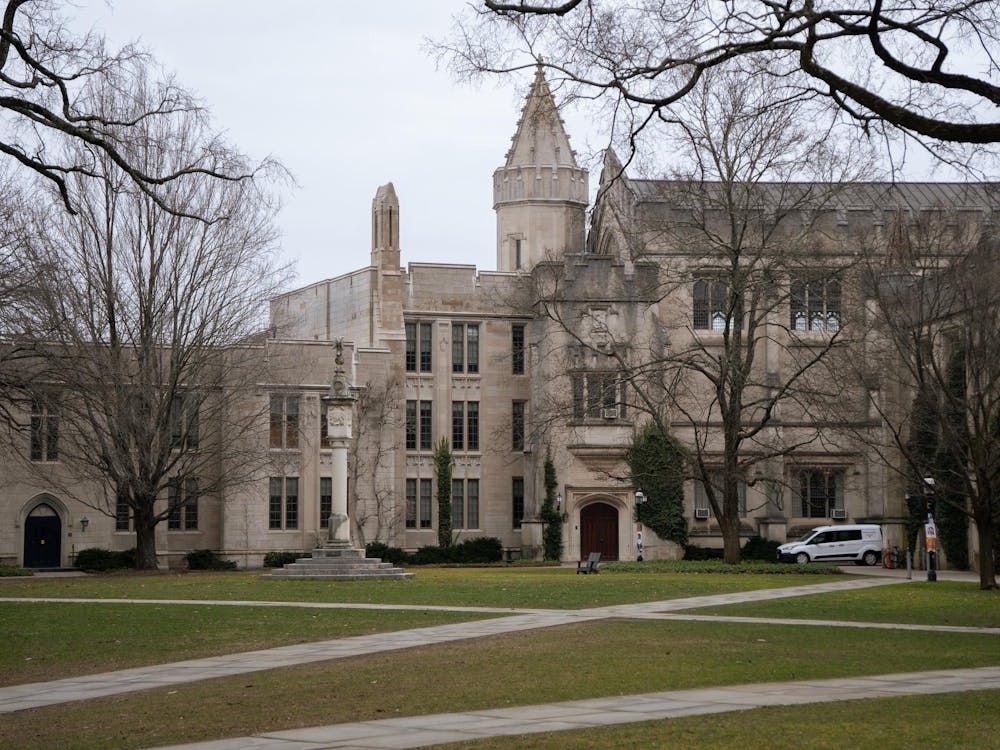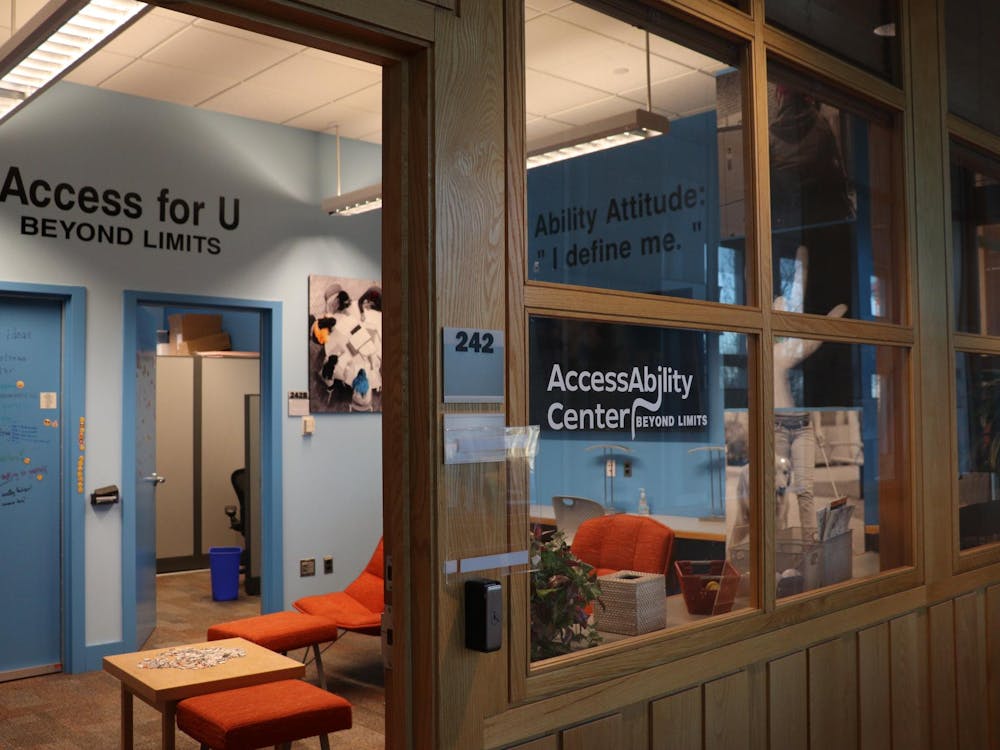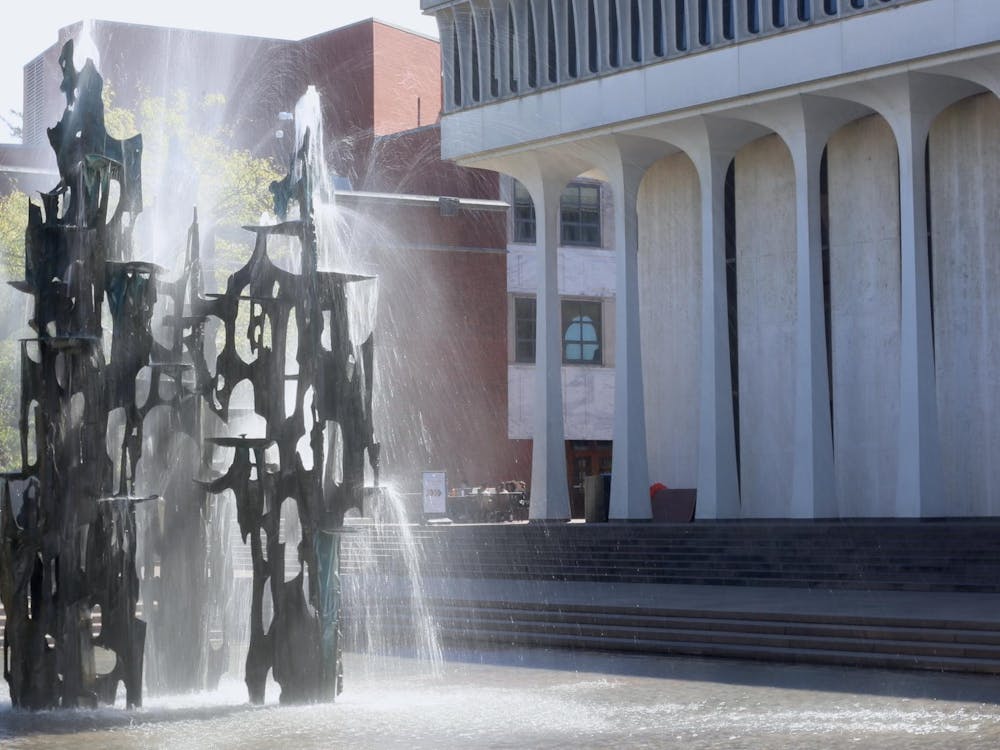The Daily Princetonian sat down with LaTanya Buck, the University’s new Dean for Diversity and Inclusion within the Office of Campus Life, to discuss her thoughts on this new position on campus and goals for the upcoming year. Buck joined the University in August; before coming to Princeton, Buck worked at Washington University in St. Louis as the founding director of their Center for Diversity and Inclusion.
The Daily Princetonian: Where did you work before coming to Princeton, and what brought you here?
LaTanya Buck: I was most recently at Washington University in St. Louis; I was hired there as the founding director for the Center for Diversity and Inclusion, and so my role there was to develop an infrastructure for the center and develop a staffing model. I was able to do that within a few years, working very closely and collaboratively with faculty, staff, and students there. I enjoyed my time there at the institution; prior to that, I was at St. Louis University, just a few miles from Washington University, and there I served as the director of the Cross-Cultural Center.
I became aware of this position at the end of last fall, I think it was around December 2015. It was the position description, actually, that stood out to me. There was an opportunity to work with multiple centers. In my previous experience, I've always worked in one center, and so we sort of did a lot of what the multiple centers here do in one space; I wanted the challenge of working with multiple centers with distinct purposes and directions. Also, I feel that there's a need on campus, too, given a lot of the activism and a lot of the efforts that have been underway on campus in the last several years. I felt like it would be a challenge to come here.
I was not looking to move, particularly to the Northeast, but I really enjoyed my interview experience. Once I got here and had a chance to meet with faculty and staff and some of the students, it just felt right. I'm super intuitive, and I'm a feel-er, and so it felt right, like a good place to be. Also, what interested me in the position is learning about the diverse array of diversity-related positions at the institution. I've been in institutions where I was maybe one of two or one of five, and here there are so many people responsible for diversity and inclusion work within their units. For me, I think that's an added bonus, because you have this group of colleagues to bounce ideas off of, a resource group to tap into. And for me, it also speaks to the commitment to diversity and inclusion work within the University.
DP: How does this position compare to work you've done in the past? Is there anything about this role that will be new for you?
LB: I think the difference here is that it feels to me to be a bit broader in scope. Looking at diversity and inclusion within the entire office of campus life, it's not just one specific unit. That was actually one of the things that really piqued my interest in the role; to look at the ways in which we can work more cohesively as a division, as an overarching unit, and think of ways to infuse concepts of diversity and inclusion, issues around identity and social justice education, into all of the work that all of us do.
It also allows the opportunity, too, to work with other colleagues, but also to bolster the work and communicate it out more broadly —that it's not just the work of several individuals or certain departments on campus, but that it's to be embedded into everybody's work, and I'm excited to work through what that looks like.
DP: Given that this is a new position, what are some of your goals for your role on campus?
LB: It's very important for me to listen, and to assess place and space, and the culture of a place before going too far deep in. I would certainly say that one of my goals is to work closely with colleagues within the Office of Campus Life, and also campus partners outside of campus life, to develop student learning outcomes and a framework of sorts to ask and answer the questions, ‘What do we want a Princeton University student to know? Who do we want a Princeton University student to be?’ as it relates again to issues of diversity and inclusion.
Another group is to convene what, right now, I'm calling an accountability partners group. I don't know what name we will land on, but basically this group will be comprised of representatives within the student community, so both graduate and undergraduate students, students who represent an array of backgrounds and experiences and identities. And for me it's very important to learn from them what the experiences are for them within the campus community, and for me to be able to articulate some of the efforts that are taking place within the Office of Campus Life. So I see this as a reciprocal relationship, where they can hold me and our division accountable to the work we're doing as it relates to diversity and inclusion, and then also I can hold students accountable as well for their actions and their efforts. My hope is to meet with this group regularly, like monthly throughout the academic year, just to make sure that we're keeping lots of communication open. It's very important for me to build trust with students, too, so I envision this space being a space for us throughout the year.

Another goal is in working with the three centers; the Carl A. Fields Center, the Women's Center, and the LGBT Center are working through strategic visioning and planning [and] thinking about what the future of them looks like. I can't stress enough this idea of cohesiveness and synergy, just figuring out what that looks like.
DP: I understand that in your role, you will be working closely with the Women's Center, LGBT Center, and the Carl A. Fields Center. Are there any specific projects or initiatives from these centers that students should be looking out for?
LB: We will spend a lot of our efforts this year reimagining and re-envisioning who they are and who they can become. I know there have been a lot of additional resources given to the centers over this past year. I know they have additional staffing support, so we want to think about what [they will] look like. We'll take all of this academic year working through this process, and I'm excited about that. We'll see —we are collectively thinking about ways to infuse concepts of diversity and inclusion, identity, equity, and social justice into the first-year orientation experience, so that's something first-year students can look forward to in the future.
DP: What have some of your first projects been this year? Can you tell us about the work you did with Community Action, Outdoor Action, and Orientation Leaders prior to the start of the academic year?
LB: I had an opportunity to moderate a few diversity and inclusion panels for the student leaders —the OA, CA, student athlete, and RCAs —and then I had the opportunity on Multicultural Weekend. I always enjoy meeting with prospective students and families, and seeing them in groups. On that panel, there were the directors of the three centers, Khristina Gonzalez from ODOC, and Mellisa Thompson from one of the residential colleges, so it was a very diverse group of experiences and professionals on the panels. It's been fun to be able to moderate those, and I would say that's been the extent of my interaction with student leaders and trainings.
DP: Do you have any final thoughts to add, on your hopes for your first year in the Princeton community or anything else?
LB: Of course to make significant process on a lot of the goals I just mentioned. Certainly for students to see me as an additional resource and person of support for them. I always like to say additional, because I know there are so many other individuals at this institution who serve in that capacity for students, but I do want them to see me as that as well, too. I have an open door policy. I make time and I make room —I try my best to do so. The reason why I do this work is because I'm very student-centric, so when I make decisions and go through processes, it's very much student-first.
I believe that diversity and inclusion work is everybody's work. You do need to have entities and individuals who are responsible, and people in positions who you can point to who are accountable for specific programs, initiatives, efforts in the institution, but I do think that it is inherently embedded, or at least should be, in the work that all of us do. I don't disconnect it from the academic and educational mission. As I think about our informal motto, ‘In the nation's service and the service of humanity,’ there's no way you can disconnect what it means to know about differences, what it means to be aware, and what it means to be understanding, what it means to be empathetic. For me it's very much attached to who we are.
After the interview, 'Prince' also asked Buck to sharea bit more about herself, beyond her work with diversity and inclusion efforts.Buck, who has a seven-year-old son, said that she is enjoying working in Nassau Hall.
“What I have been enjoying is the ice cream in the dining halls! I do like that. The chocolate chip and strawberry ice cream,” she said,"I'm excited to explore the Northeast. I'm a Midwest woman through and through, so I see this as an adventure.”








